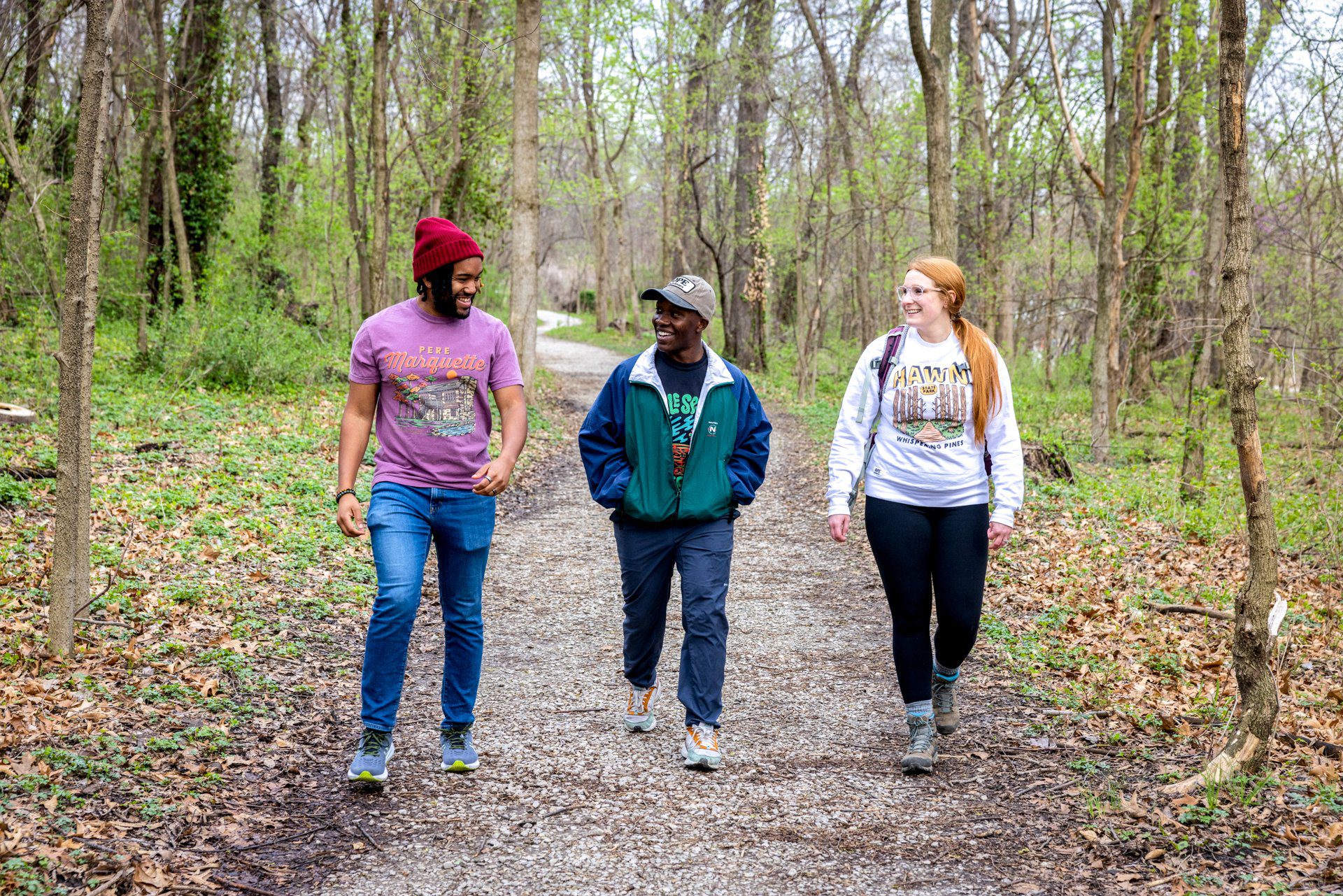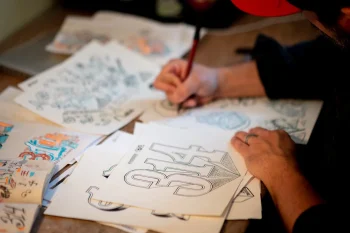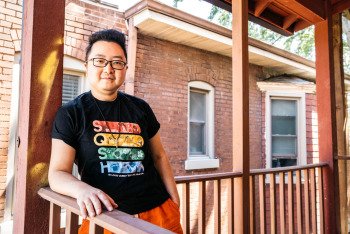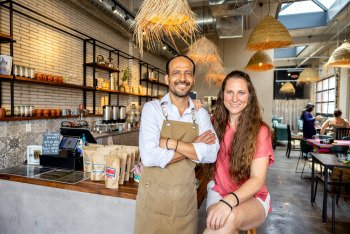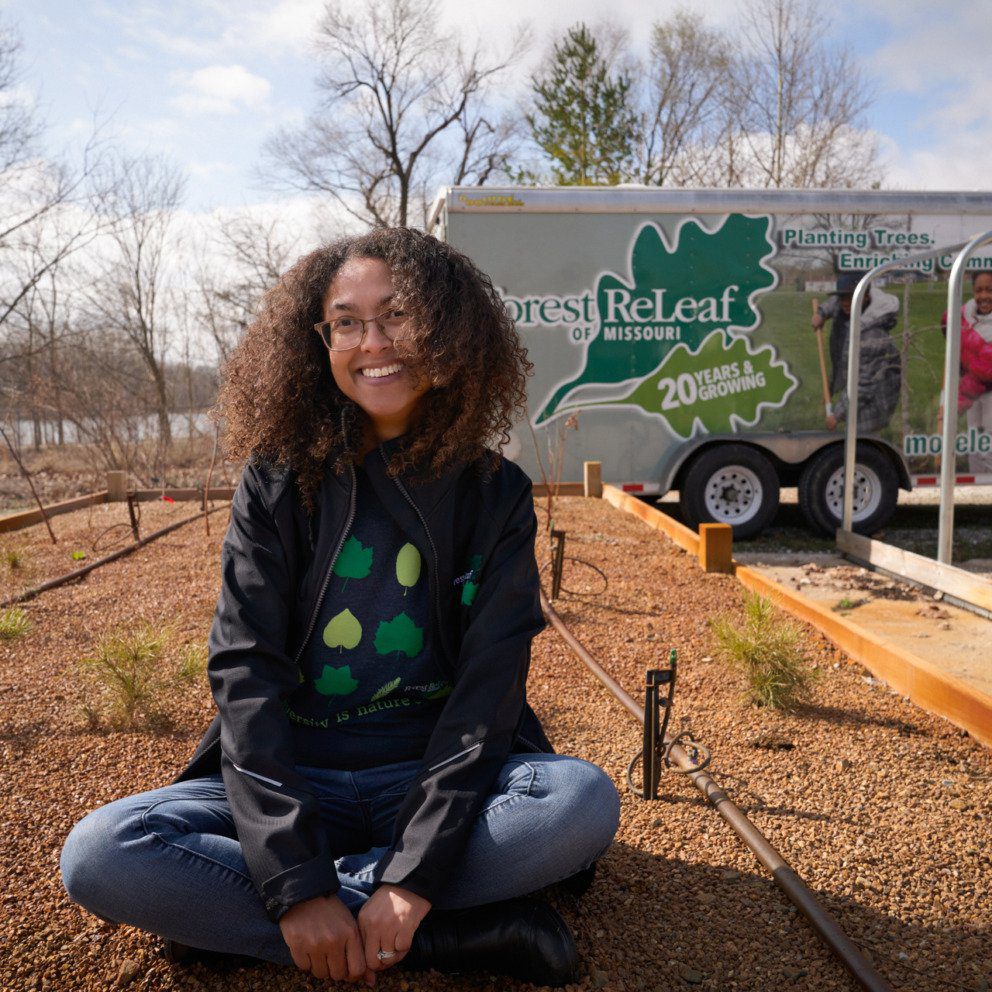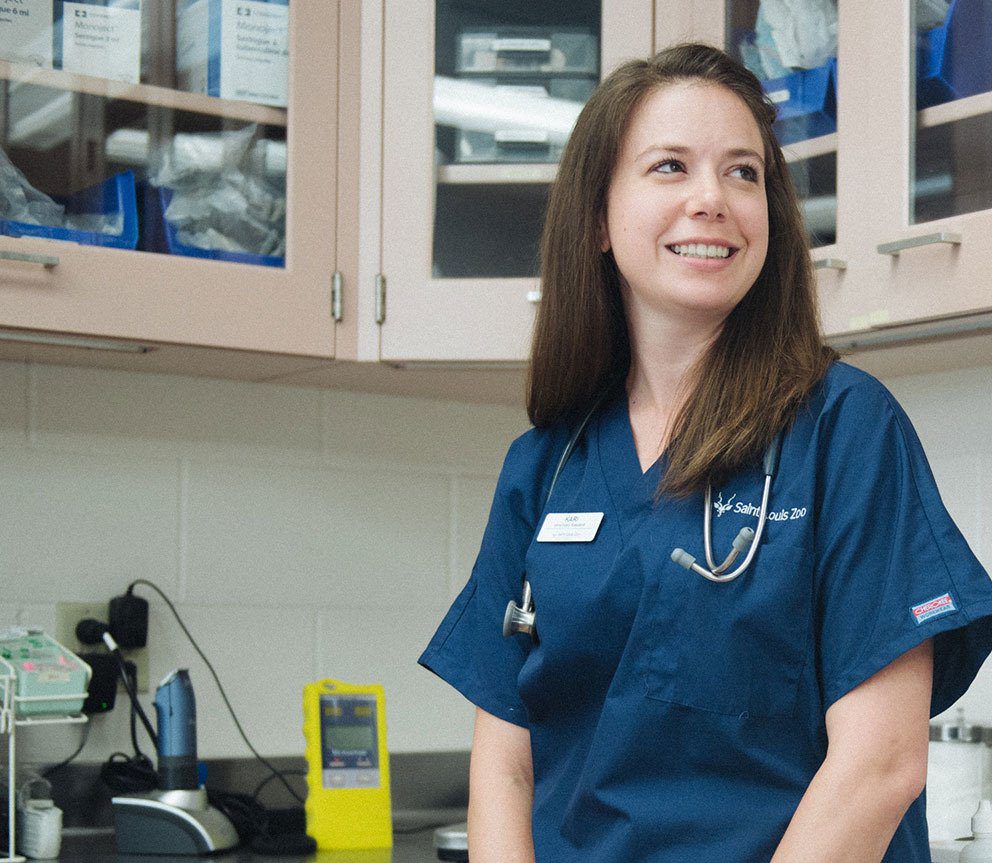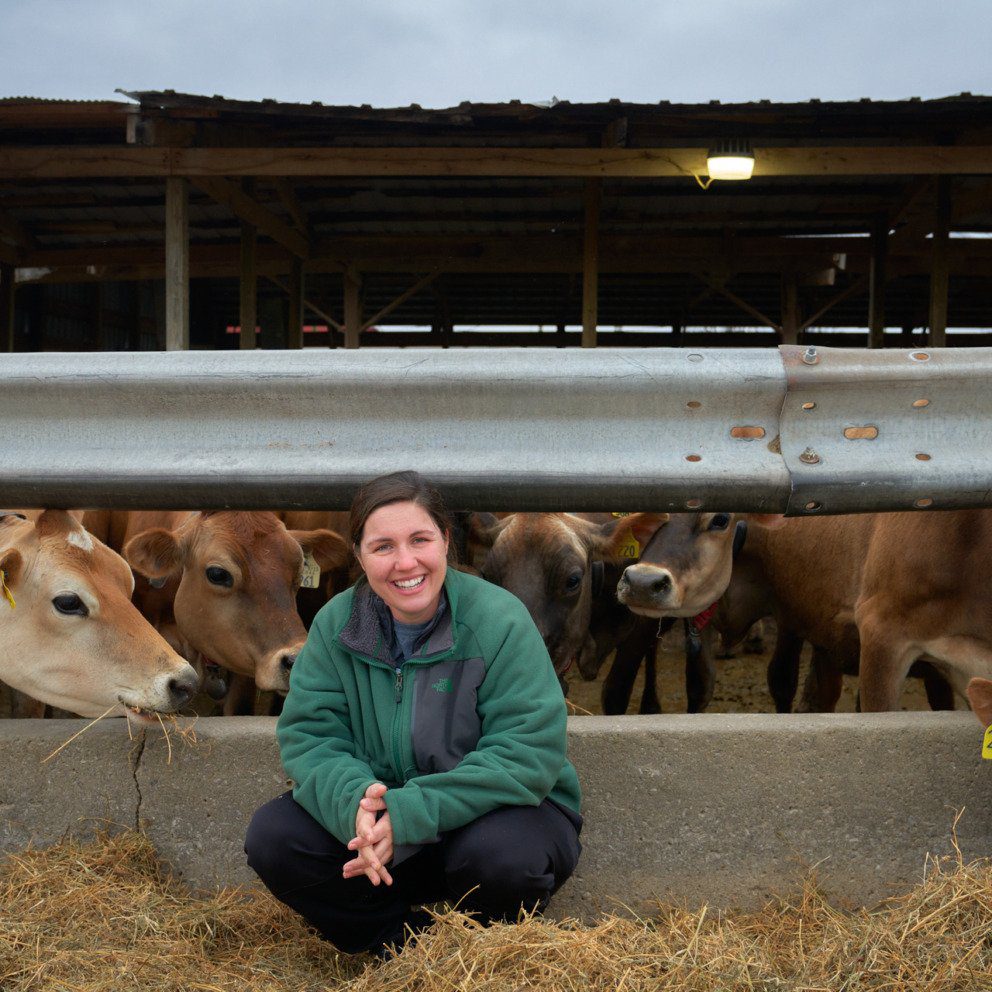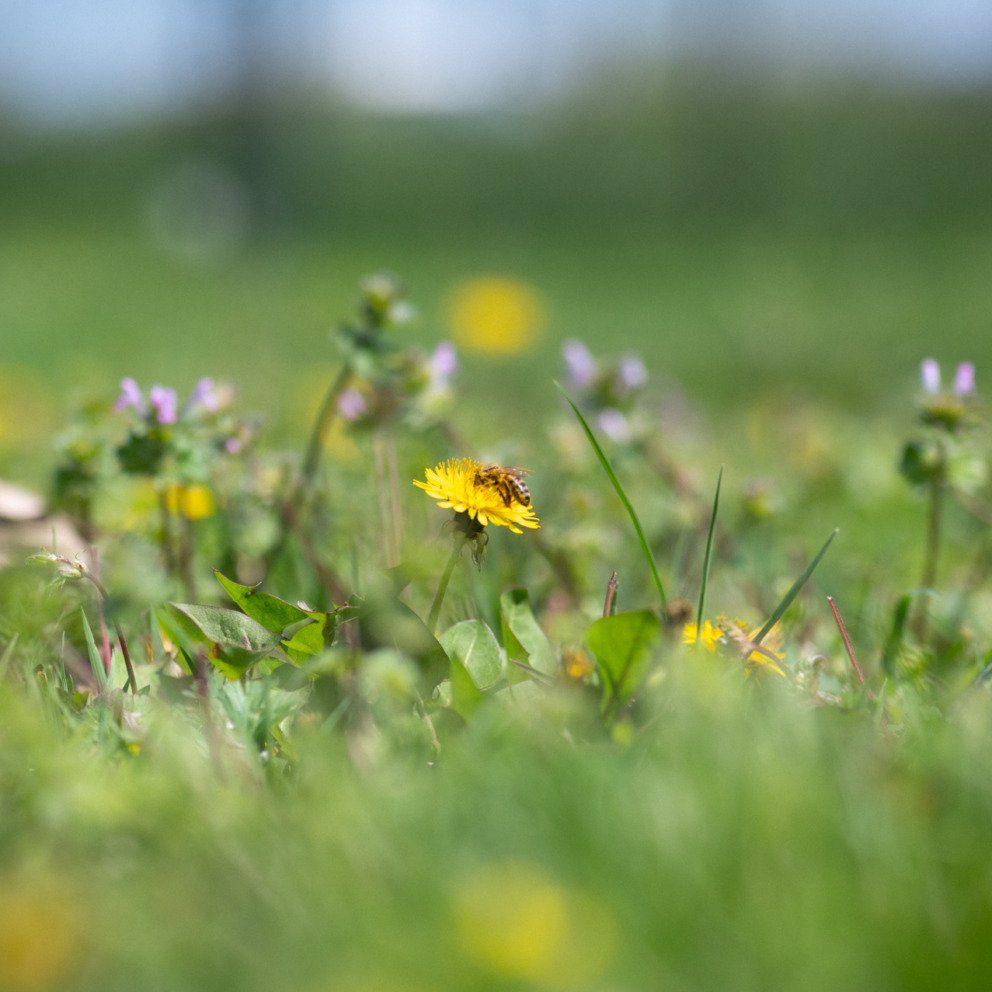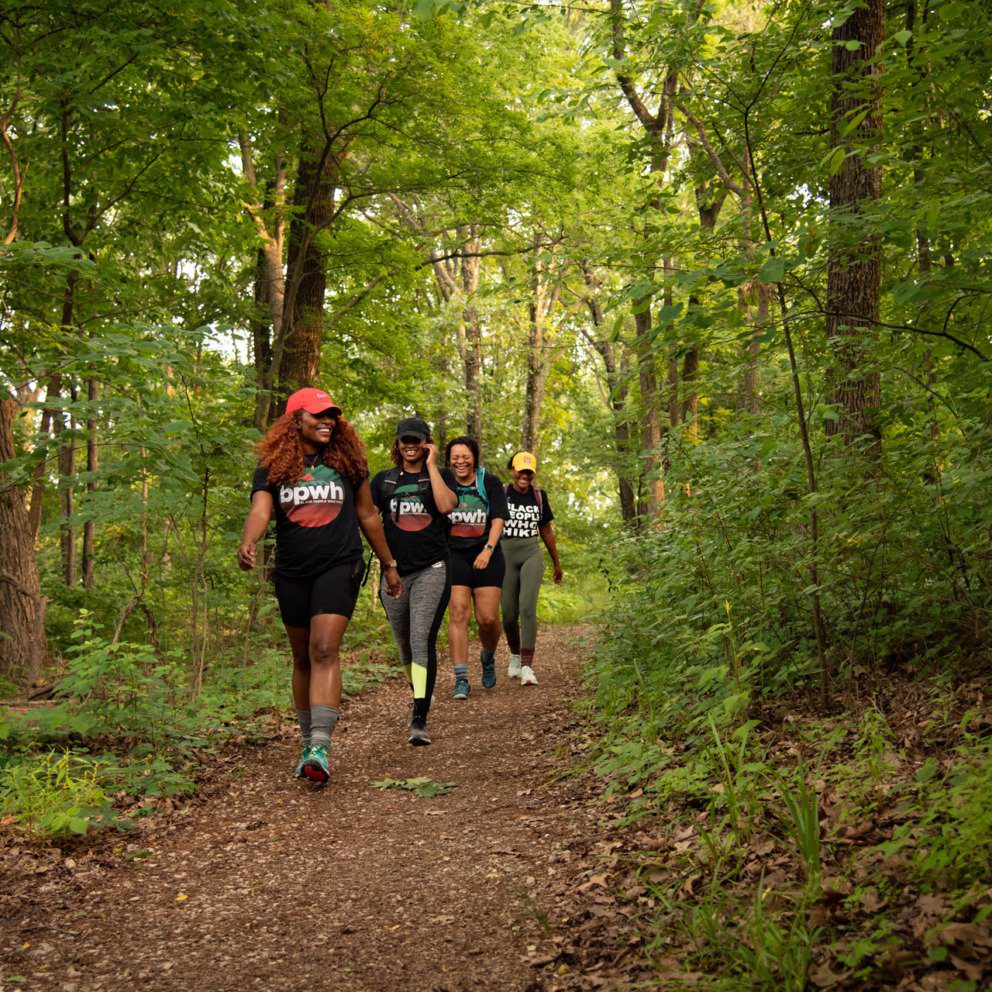Outdoor
Enthusiast
With Ope Outdoors, Juno Musonda is spreading love for the Midwest’s parks and natural attractions through merchandise, park cleanups and hikes.
Hawn State Park and Pickle Springs Natural Area are Juno Musonda’s favorite parks. The neighboring natural beauties are just over an hour’s drive south of St. Louis, boasting especially lush forest greenery and sparkling, boulder-lined rivers, creeks, and waterfalls. Both offer gorgeous hiking trails and postcard-worthy autumn scenes come fall, with a few striking rock formations that might catch your eye. And thanks to Musonda’s clothing company, Ope Outdoors, both parks have been turned into one-of-a-kind designs available for purchase as short sleeve and long-sleeve t-shirts.
“The word ‘ope’ is just such a Midwest thing,” says the 29-year-old business owner, referring to the common regionalism that Midwesterners inevitably find themselves uttering. “I think we need to embrace that part of this culture. I want this brand to be a Midwest brand, and that means being a little silly, and we don’t take ourselves too seriously.”
Musonda grew up entirely in the Midwest. Originally born in Zambia, he moved to the United States as a toddler and spent time living in both St. Louis and Arnold, Missouri. When he was in eighth grade, his family’s visas expired, interrupting their stay in the United States. Musonda’s parents left him in the care of a family friend in Hillsboro, Missouri while they moved back to Zambia. Starting a regionally-inspired clothing brand that celebrates the outdoors, then, isn’t really much of a leap. After all, he grew up enjoying the very same kinds of scenery celebrated on Ope Outdoors’ merchandise.
Founded in 2020, Musonda originally imagined the clothing brand as an entirely sustainable project, complementing the business venture with organized group hikes and group cleanups of nearby parks and hiking trails that serve as the community-based core of Ope Outdoors.
The company’s first collection of shirts were made with recycled plastic and recycled fabric. It allowed Ope to not only reduce waste by reusing recycled products in the manufacturing of Ope’s products, but also to raise awareness about the clothing industry’s shocking contribution to consumer waste as one of the largest producers of waste in the world. Today, fast fashion brands produce roughly twice the amount of clothes than they did two decades ago, while the average American consumer throws away about 81.5 pounds of clothes each year. In fact, roughly 92 million tons of clothing and textiles end up in landfills annually. From microplastics and carbon emissions to water waste and pollution, sustainability is becoming a progressively more valuable aspect of the fashion industry for big and small brands alike. And yet, adhering to sustainable manufacturing still poses a considerable challenge for many smaller brands that can’t yet afford the cost difference.
“I had to pivot because of that exact fact,” Musonda tells me. “The infrastructure is still really difficult to afford, especially for an emerging brand.”
While the business’ first collection was indeed sustainably made, he’s since had to pull back from that part of his vision for subsequent merchandise. As he continues to work on new shirt designs (he’s developing a shirt in collaboration with the Missouri State Parks Foundation, and considering designs for Katy Trail State Park and Washington State Park), he’s researching alternate processes and reaching out to manufacturers to learn about new, more affordable sustainability options.
“It’s a hard business to do, but the facts are just so damning,” he continues. “It’s really hard to not consider it because the pollution is crazy. But that is a mission that I want to come back to. The idea behind these shirts now is that they’re made to last for a really long time. Sustainability is very important, it’s just difficult to implement in totality. But it’s definitely a goal we’re trying to get to.”
Musonda took Ope’s environment-first mission a step further, hosting group hikes and group cleanups at parks and hiking trails around the St. Louis region alongside running the business. These public events, and the sense of community that blooms around them, he says, were always meant to be a central part of the clothing brand. After pausing events during the events of 2020, Musonda eventually resumed both activities, organizing the hikes and cleanups in alternating months.
Once he identifies a location for the cleanup, he selects a weekend and publicizes it on Ope’s Instagram page. Attendees are asked to fill out an online form ahead of time to provide Musonda with a headcount. The morning of the event, he brings all of the necessary supplies for the group: gloves, trash bags, and occasionally coffee and donuts to share. They spend the next hour to hour and a half walking the grounds picking up trash and debris, before meeting up again to chuckle about any peculiar discoveries found in the woods. (Musonda says he and attendees have found some bizarre things during cleanups.) Then they discard all of the trash and head home. It’s a very simple process, and for Musonda, it’s also a very rewarding one.
“I’ve noticed the businesses I like and the things I like go outside of themselves a little bit and do things in the community,” he explains. “I think having an activity where people come together and do good is just a good thing to have. It makes me feel good as a business owner. It’s not just about the money and, you know, slinging shirts — there’s a mission behind this. There’s a purpose.”
He tries to keep both the cleanups and the group hikes limited to within a 20-mile radius of the city to increase the likelihood that people will attend. And he’s in the process of adding parks and green spaces within the city limits, too, noting that those “can get pretty trashed up.” The group hikes are organized in a nearly identical process, just without the supplies and the actual cleanup. And now that he’s hosting events and attending pop-ups much more regularly now, Musonda says he’s starting to see a few return faces here and there.
The kind of temporal, communal experiences cultivated on each excursion is a special joy for Musonda, and returning attendees give him an even greater sense of the kind of sustained community possible through something like Ope Outdoors. Musonda notes that for a good chunk of the newcomers, these kinds of events might be their first time ever going on a hike or visiting Missouri’s state parks. The group setting makes the adventure feel much less intimidating, he says. Plus, he gets to be the one to show off the region’s incredible natural beauty and scenic landscapes.
Still, as a Black person, the seeming rarity of seeing Black St. Louisans enthusiastically exploring the land around the city center does cross his mind. As an immigrant, and as someone who grew up in a more rural part of Missouri, he admits that he has a bit of a different personal relationship to the history of anti-violence and trauma at the root of the aversion to rural spaces, but Musonda understands the history and isn’t dismissive of it. He just wants to be part of the process of welcoming Black residents into the spaces they might be hesitant to enjoy. And thankfully, there are a few organizations in St. Louis, like Black People Who Hike, that are specifically aimed at supporting that exact mission.
“I think part of this too is just to change the stigma around all this stuff, because I’ve noticed even when I first started getting into this, how awkward it was going to REI as a Black person. Oh, what are you doing here? I’m like, I’m here to pick up stuff. Or even when I’m at the pop-ups—Oh, this is your thing, right? I’m like, yes,” he laughs.
“It’s a right that everyone has, you know?” Musonda asserts. “Everyone deserves to be out in these places. It shouldn’t be for a particular type of person. It’s the earth, you know? You can’t distinguish a certain race for the earth.”
Join the Story
- Shop Ope Outdoors on their website, at Big Muddy Adventures Guide Shop or every other Saturday at the Tower Grove Farmers Market.
- Check out the STLMade stories of other outdoor enthusiasts:
